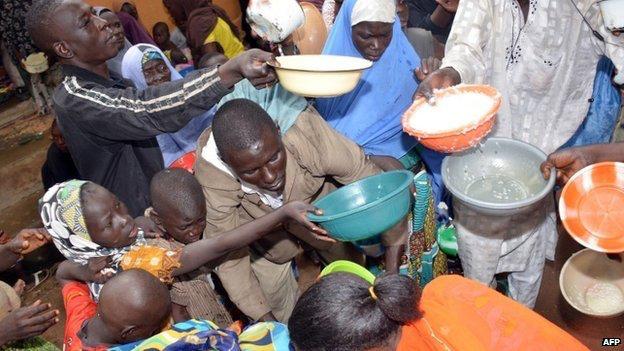The United Nations has raised concerns that the removal of fuel subsidies and subsequent increase in energy prices has worsened the battle against severe hunger in Nigeria, particularly in the northern regions. Mr. Matthias Schmale, the UN’s top humanitarian official in Nigeria, shared this information during a press briefing in Geneva.
According to Schmale, 4.3 million people in Nigeria’s Borno, Adamawa, and Yobe states are at risk of severe hunger. Additionally, the number of children under the age of five at risk of life-threatening severe acute malnutrition has doubled in one year, reaching 700,000. Schmale expressed his firsthand experience of witnessing mothers struggling to save the lives of their malnourished children in nutrition stabilisation centers.
The humanitarian official highlighted that the dire situation is primarily a result of over a decade of insecurity caused by non-state armed groups, which has hindered farming activities and the ability to generate income from the land. Other contributing factors include extreme weather events such as flooding, which affected over 4.4 million people across Nigeria.
The report also noted that soaring prices of food, fuel, and fertilizers have further aggravated the crisis. Despite the urgent need for humanitarian funding amounting to $1.3 billion for the region, only 25% of the required amount has been secured thus far.
To address the rising hunger, the United Nations World Food Programme (WFP) recently launched a $2.5 billion Country Strategic Plan (CSP) for Nigeria. The five-year plan, aligning with the Sustainable Development Goals (SDG 2), aims to combat hunger and malnutrition in selected states, particularly in the Northeast and Northwest regions. It also emphasizes the importance of health, education, gender equality, and climate action in achieving food security and improved nutrition in Nigeria by 2030.










